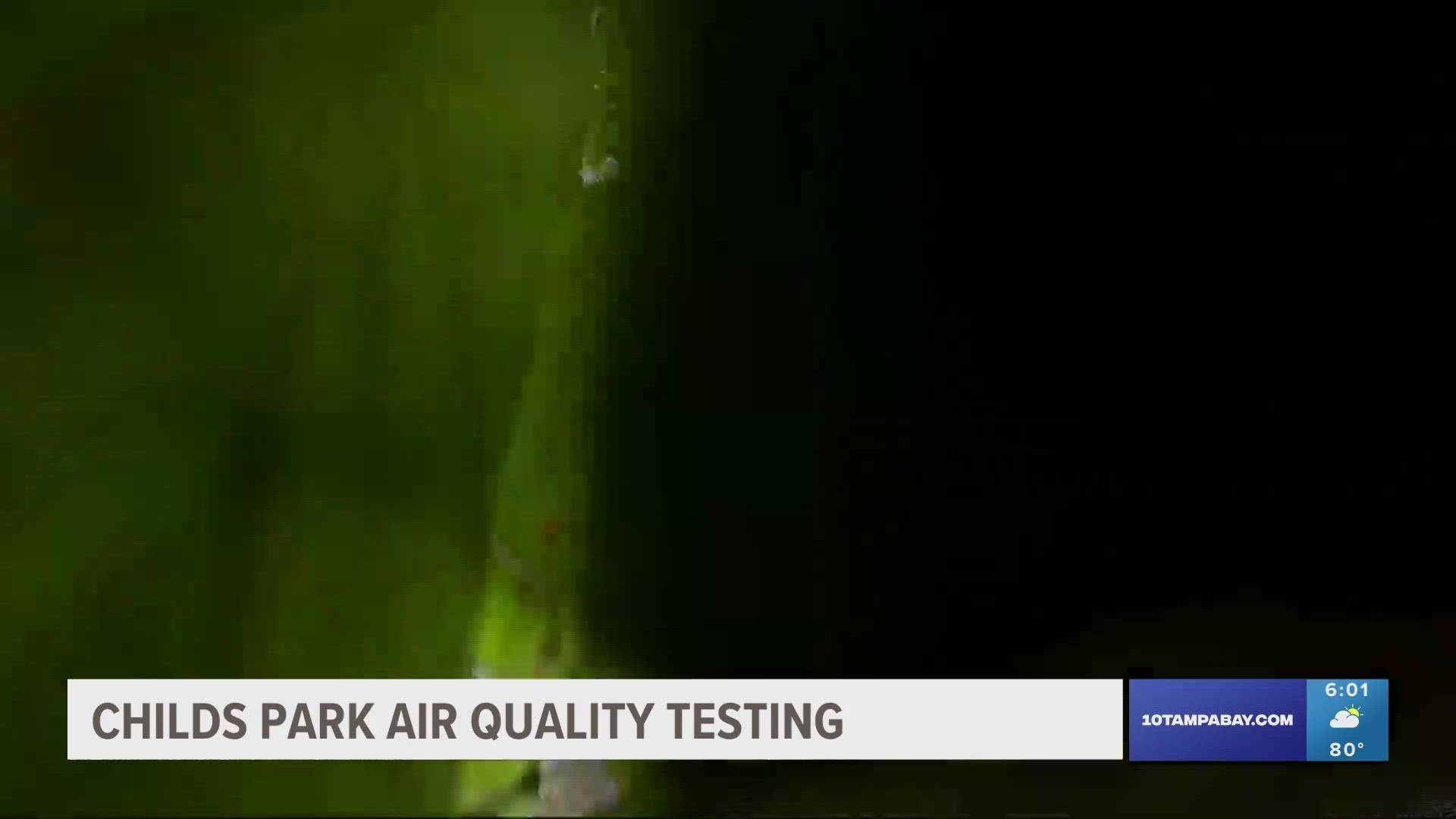ST. PETE BEACH, Fla. — For years, those living in the Childs Park neighborhood in St. Petersburg have been complaining of certain smells.
On Tuesday afternoon, researchers took matters into their own hands and tested the air quality. Polina Maciejczyk is a chemistry professor at Eckerd College and walked miles through the neighborhood with an air monitor in her hand.
Maciejczyk and other researchers are trying to figure out what’s causing smells in the Childs Park neighborhood. Researchers from the University of South Florida and Eckerd College are measuring hazardous air pollutants. Some researchers have been a part of this for the past three years.
She pointed out a big concern she has heard from residents is the amount of factories in the neighborhood. 10 Tampa Bay walked miles with Maciejczyk. We smelt what residents were complaining about. Some areas smell like sulfur, burning and garbage.
Maciejczyk had an air monitor that took samples of certain compounds in the air.
"It measures volatile organic compounds every minute," Maciejczyk said.
The goal is to find out what’s in the air. It's important to note that just because there is a smell doesn't necessarily mean it's harmful.
"Not everything that smells could be toxic smells and not everything toxic smells," Maciejczyk stated.
Disston Heights is the control area. In Childs Park, scientists have seen spikes in certain air pollutants, but to determine if the air quality is dangerous or not, researchers need more data. From walking the streets in the past year, Maciejczyk has been able to draw some conclusions.
"We have determined that there is definitely presence of volatile organic carbons and some sulfur compound," Maciejczyk said.
Those living in Childs Park worry what they breathe in is harmful to their health. Maciejczyk said to determine health impacts there would need to be a health study conducted. Maciejczyk added the data they get from walking the streets will be useful for residents.
"The goal is to have enough solid science data so they can take action based on good science," Maciejczyk stated.
Researchers plan to test for another four months. They hope by next year they will have clarity from their data about what's in the air.

